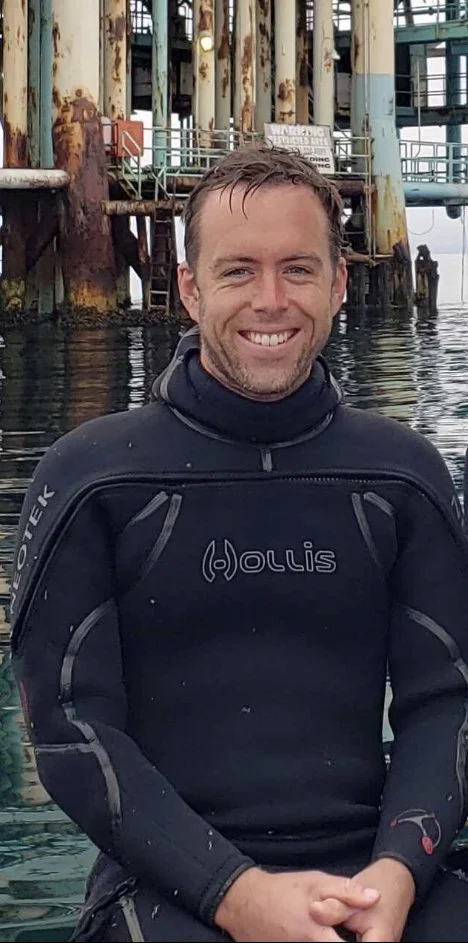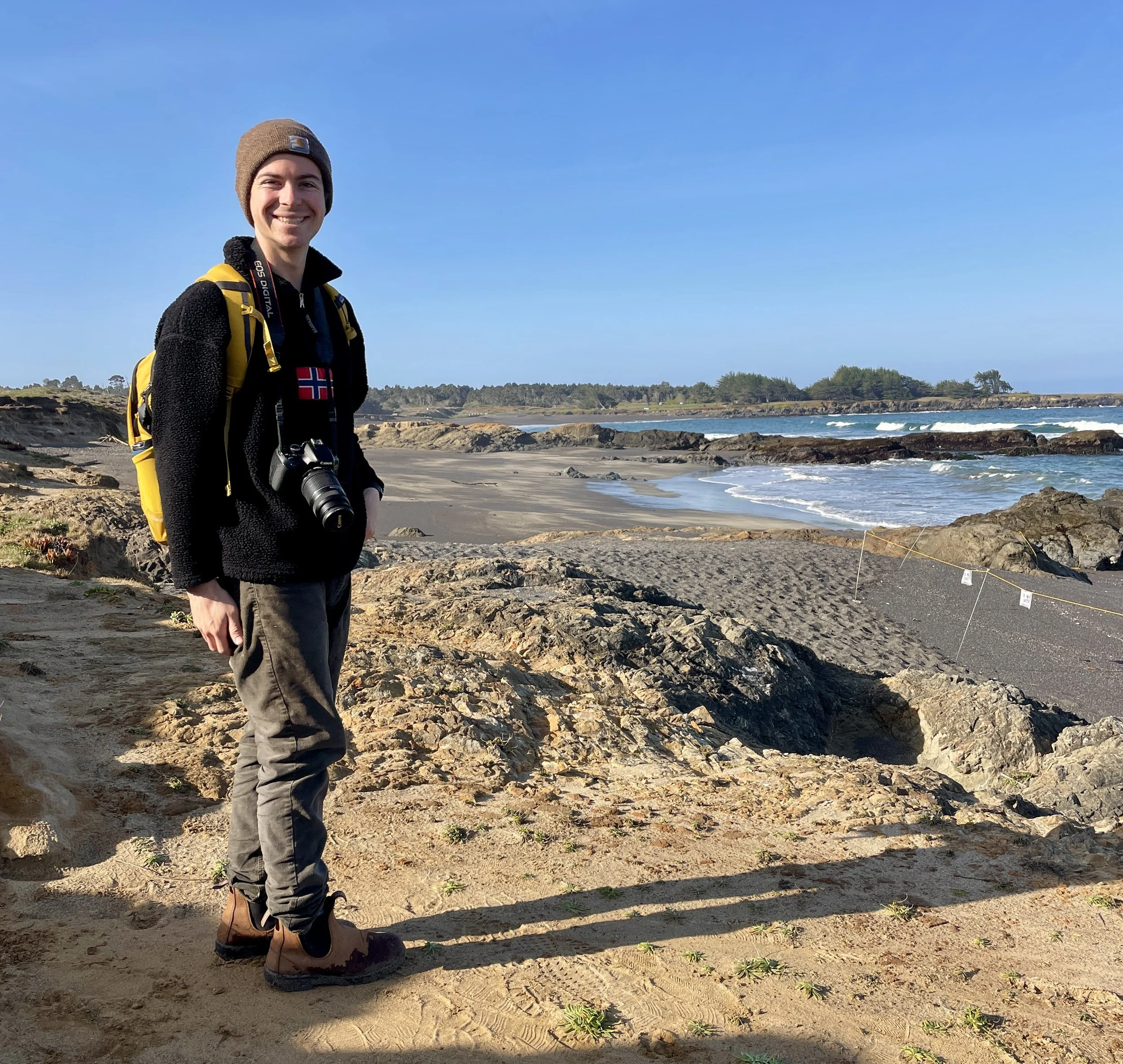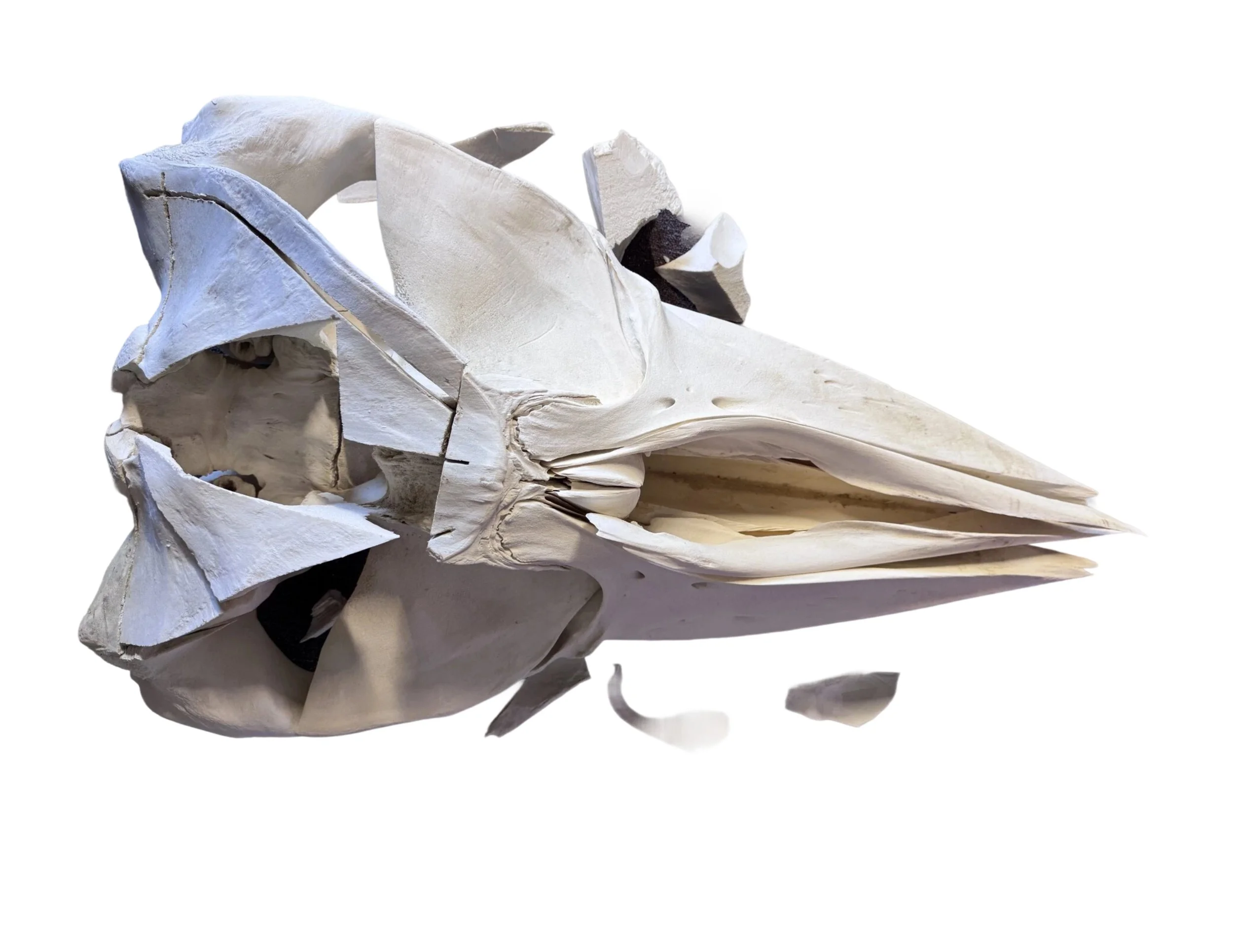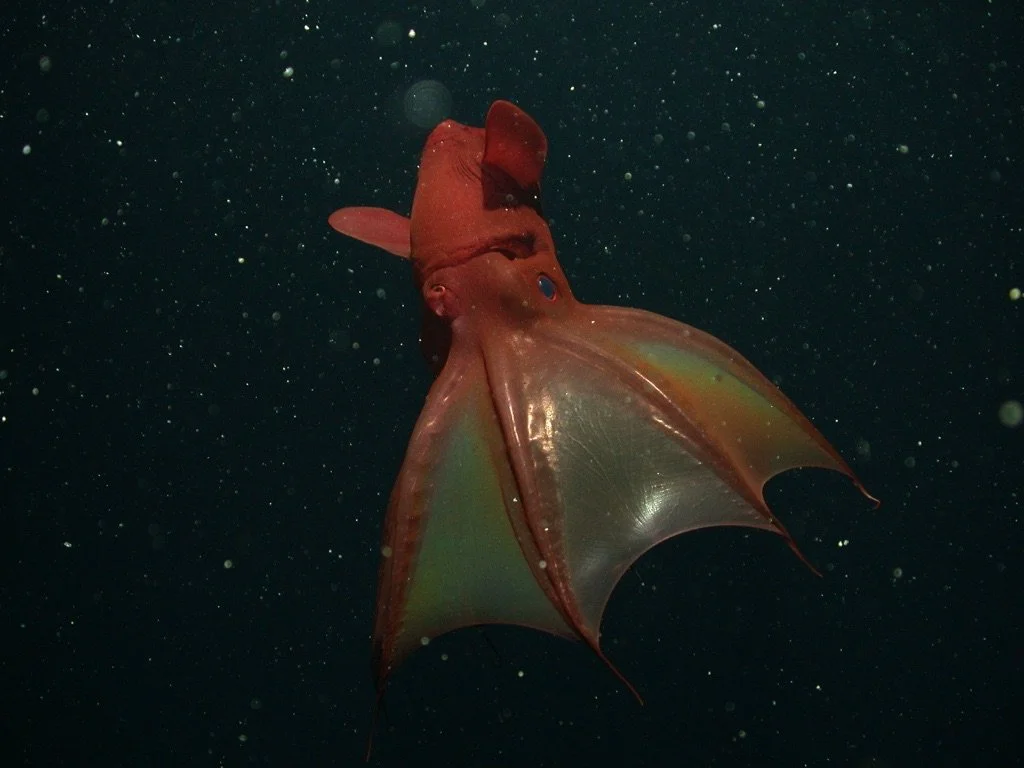
Noyo Center Halloween Party & Science Social: The Weird and Wonderful: Ocean Oddballs and Peculiar Partnerships
Costumes
Encouraged!
The Weird and Wonderful:
Ocean Oddballs
and Peculiar Partnerships
Guest Presenter: Brianna Zuber
Mendocino College Biology Department
Thursday, October 30, 2025
Noyo Center Marine Field Station
32430 N. Harbor Dr., Fort Bragg
5:00 Halloween Happy Hour
6:00 Presentation Begins
Dive into the strange and spectacular world of marine life! This talk will explore the biology behind some of the ocean’s most curious creatures and unexpected partnerships. Perfect for spooky season, learn about vampire squid, tongue-eating isopods, the slimy hagfish, unwanted visitors, ghost reefs, zombie fish, and much more!
Brianna Zuber was born and raised in Georgia. She stayed in Georgia to attend a small college where she took classes like Ecology, Conservation Biology, and Ichthyology, fell in love with working with fishes, and earned a degree in Ecology and Field Biology. After that, she received a Master’s degree in Biology and then finished her Ph.D. in Environmental Sciences. All along the way she studied fishes, ecology, and the environment. She moved to Ukiah in 2016 to work at Mendocino College where she is currently a Biology instructor and teaches courses in Marine Biology, Zoology, and Botany. She lives in Willits with her husband and their three awesome dogs.
There is no charge for this event
but please let us know you are coming:
Vampire Squid Photo: MBARI
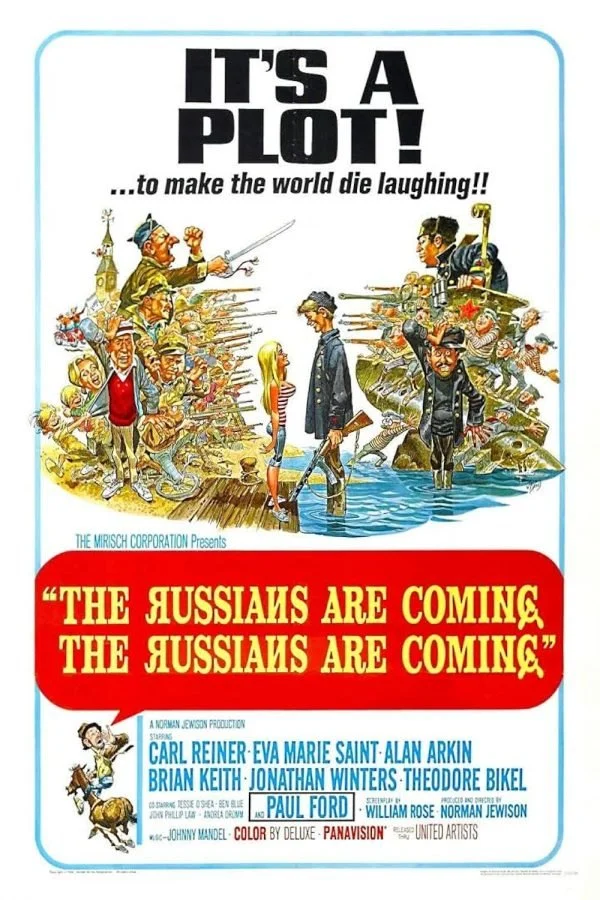
60th Anniversary Reception & Screening of “The Russians are Coming, The Russians are Coming”
60th Anniversary Reception & Screening of
“The Russians are Coming, The Russians are Coming”
Brace yourself for a comedic “invasion” on the coast as we celebrate the 60th anniversary of The Russians are Coming, The Russians are Coming, a Cold War classic shot almost entirely on the Mendocino Coast.
2pm-3:30pm: Reception and Pop-Up Exhibit: Free Admission
Noyo Center for Marine Science’s Field Station (used as a filming location) at 32430 N. Harbor Drive in Fort Bragg. Enjoy snacks and drinks as you meet local residents who were extras during the film’s production. Don’t miss the Kelley House Museum’s pop-up exhibit full of memorabilia, which will be on display at the reception and includes historic photos of the premiere at Coast Cinemas. Free admission.
4pm-6pm: 60th Anniversary Screening of
The Russians are Coming, The Russians are Coming: Tickets $15
Coast Cinemas, 135 S. Franklin St. Fort Bragg. During production, the Fort Bragg Advocate News described the comedic plot as, “the accidental grounding of a Russian submarine because its skipper wanted to get a closer look at the United States. The sub gets hung up on a sandbar and the plot unfolds as the crew determines ways of getting away at the same time Americans are mistaking the accident as an invasion.” The cast included Carl Reiner, Alan Arkin, Eva Marie Saint, Jonathan Winters, Brian Keith, and Ben Blue, plus plenty of locals.
The event is jointly hosted by the Mendocino Film Festival, the Kelley House Museum, and the Noyo Center for Marine Science.
Noyo Center Science Social: Sea Level Rise: Education Program Curriculum
Sea Level Rise:
Noyo Center Education Programs Curriculum
Guest Presenter:
Reesha Katcher
Education Programs Coordinator
Noyo Center for Marine Science
Wednesday, November 19, 2025
Noyo Center Marine Field Station
5:00 Happy Hour (Wine, beer, and soft drinks)
6:00 Presentation Begins
Reesha will share findings from curriculum that has been created through our unique partnership with NASA, discuss our collaborative efforts to engage our coastal youth, and highlight efforts from our Blue Economy partners to build resiliency in our harbor and our community.
There is no charge for this event, but a suggested $10 donation at the door (or online) to help support these events is encouraged.
Noyo Center Science Social and Presentation with Katherina Audley: From Mexico to Mendocino: Unlocking the Lives of Humpbacks
From Mexico to Mendocino:
Unlocking the Lives of Humpbacks
Insights from 12 years of humpback whale research, with new footage and discoveries shared by Katherina Audley
Tuesday, October 21, 2025
Noyo Center Marine Field Station
Katherina will give a 45-minute talk with Q&A, sharing never seen before footage of humpbacks in action—ballet-like movements, surprising encounters with sea turtles, dolphins, and golden cownose rays, and intimate moments between mothers and calves.
Drawing on 12 years of community-powered research in Guerrero, SW Pacific Mexico, Katherina will connect our local whales to their southern breeding grounds and show how this work has contributed to scientific understanding of humpback whales and informed policy across Mexico, the U.S., and Canada.
Don’t miss this chance to deepen your connection to these majestic creatures and the ocean we share.
This event will be available both in person and online.
There is no charge for this event, but a suggested $10 donation at the door (or online) to help support these events is encouraged.
Please let us know you are coming by registering below:
RSVP to attend in person here:
OR RSVP to attend online here:
View the Zoom recording of the program.
Katherina Audley is a National Geographic Explorer, Development Director of the Noyo Center for Marine Science, and founder of Whales of Guerrero. From 2014 to 2024, she led Whales of Guerrero, a community-powered research and education project in Guerrero, Mexico. Over that decade, the project documented humpback whales and generated new insights into their lives, while also training local community members as scientists, guides, and educators. This research has informed how governments in Mexico, the U.S., and Canada understand and protect humpback whales. She has more than 25 years of experience in marine science communication, conservation, and nonprofit leadership.
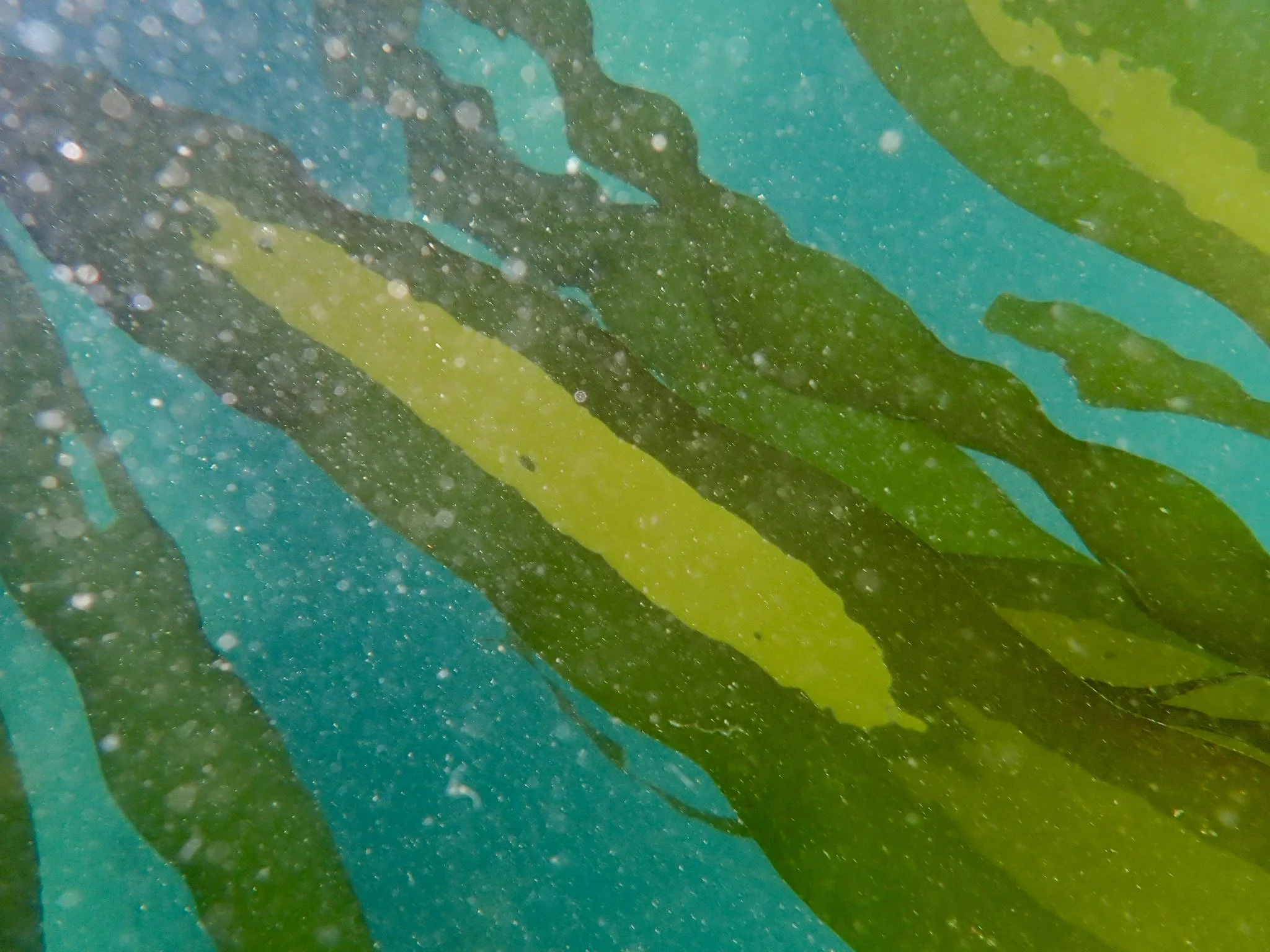
KelpFest!: Regenerative Aquaculture Panel Discussion and Seaweed Happy Hour
KelpFest!
Regenerative Aquaculture Panel Discussion
and Seaweed Happy Hour
Sunday, October 5, 2025
3:00-5:30 PM
Noyo Center for Marine Science Field Station
32430 N. Harbor Drive in Fort Bragg
Dive deeply into the topic of regenerative aquaculture with a panel discussion hosted by the Noyo Center. The program includes scientists involved with current research programs focused on purple urchins, and the latest in recovery efforts for abalone, bull kelp, and sunflower sea stars. Noyo Center Executive Director Sheila Semans will moderate the program.
Stick around after the program for Seaweed Happy Hour and meet the scientists while you enjoy a little food and drink, including some local wines from Anderson Valley’s Minus Tide Wines, North Coast Brewing Company beer, and non-alcoholic offerings.
There is no ticket price for this event, but a suggested donation of $10 or more helps support our ability to bring you these programs.
Guest Speakers
-
Luke’s research interests broadly involve the development of sustainable aquaculture. Specifically, he is working with industry to apply advanced and emerging technologies to help solve issues limiting aquaculture growth. He has primarily used biotechnology to study physiological systems in marine organisms including reproduction, biomineralization, toxicology and nutrition.
Economically incentivizing the harvest of wild purple urchins in aquaculture can help reduce the urchin population and restore kelp forests. However, the urchins in barrens have limited economic value due to their starved state. Aquaculture can help fatten the roe in the urchins and increase their value. To do this a team of researchers, urchin divers, aquaculture farmers, and community members have been working on developing diets optimized for urchin roe growth as well as determining the ideal culture conditions to increase the quality of the roe year-round. Together this research is hoped to provide needed technology and information to jumpstart urchin ranching aquaculture and support kelp recovery.
-
Elora López-Nandam is an evolutionary biologist with research interests in the ecology, evolution, and conservation of marine ecosystems. She has used genetics to address a wide range of topics in the ocean, from sea cucumber fisheries in Fiji to coral bleaching in American Samoa. Currently, she combines genomics with aquarium husbandry for important marine animals like corals and sea stars.
Since 2022, the California Academy of Sciences has been optimizing methods to spawn and raise echinoderms, and since 2024, we have led efforts to spawn and raise the first two cohorts of sunflower sea stars in California aquariums. The interdisciplinary team includes the husbandry experts of Steinhart Aquarium and the research expertise of the Academy's biodiversity science division. By combining husbandry experiments with genetics and statistical analysis, we aim to build best practices for conservation breeding programs worldwide. The success of the first two sunflower sea star cohorts has opened new doors for the future of this species in California.
-
Dan serves as the Director for Oceans and Aquaculture with the Kashia Band of Pomo Indians, Indigenous peoples of the Sonoma Coast in Northern California. On behalf of Kashia, Dan leads several projects working to advance kelp forest restoration and Tribal aquaculture with academic, government, and non-profit partners on the West Coast of the USA. In addition to his Tribal affiliation, Dan also holds an appointment as a research scientist at the UC Davis Bodega Marine Laboratory, and he previously worked as Lead Scientist for The Cultured Abalone Farm LLC., one of California's longest running aquaculture businesses. Dan’s work is diverse and collaborative, encompassing themes of ocean food, the conservation of biological diversity, and the sovereignty of indigenous peoples. Dan will speak about the highly collaborative red abalone captive breeding program now underway.
-
Torre has been an ecologist since he could crawl. Exploring the dirt, worms, trees, snakes, and birds in his own backyard translated very well when he decided to pursue Marine Biology at Humboldt State University. His fascination with intertidal ecology led him to pursue scientific SCUBA diving, so he could gain a deeper understanding of how coastal ecosystems work.
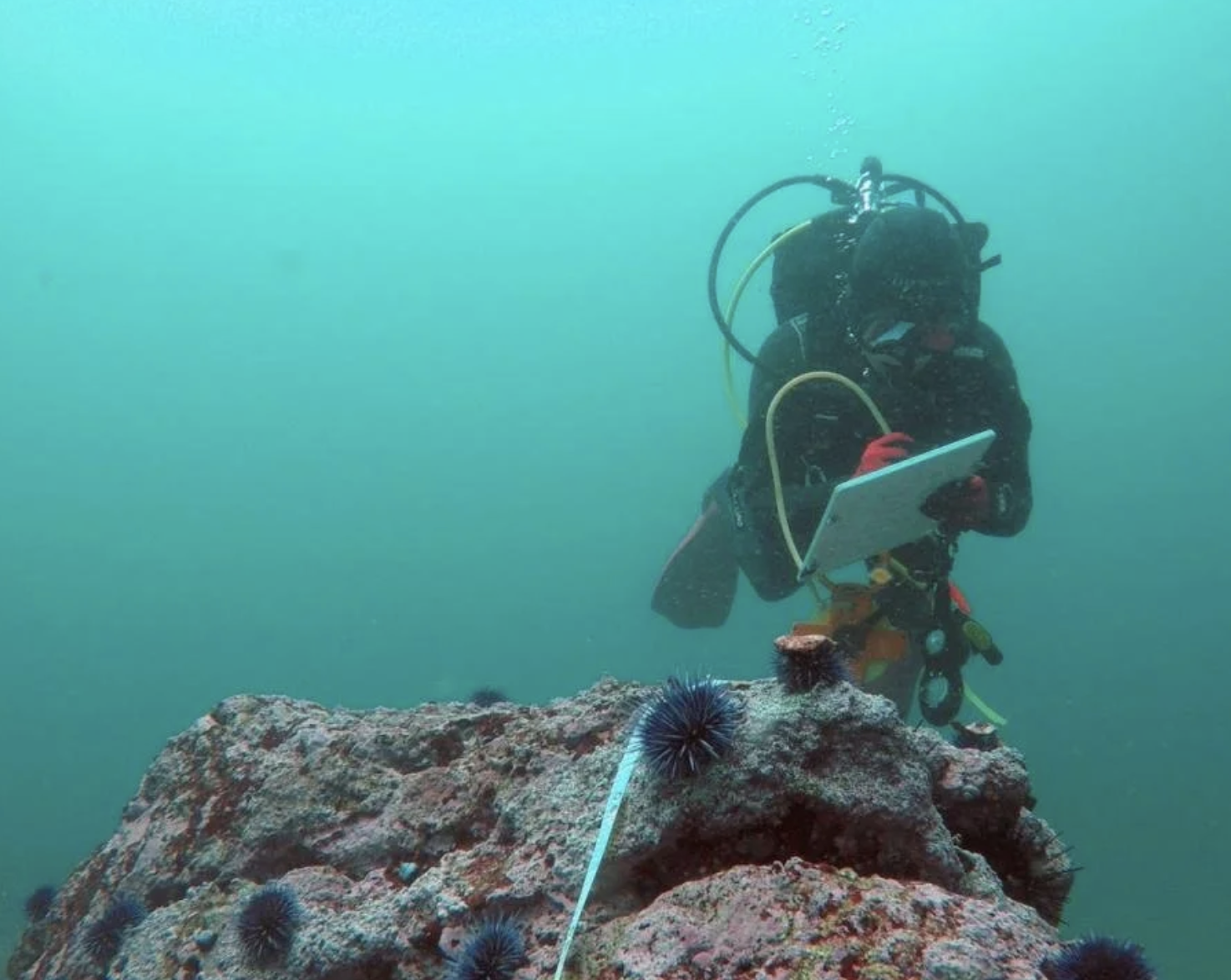
KelpFest! Special Presentation: Kelp RISES Research Group
Photo: Kelp RISES
Kelp RISES Research Group
Sunday, October 5, 2025
11:30 AM - 12:45 PM
Noyo Center for Marine Science Field Station
32430 N. Harbor Drive in Fort Bragg
Learn about the Kelp RISES research into the question: how might different kelp restoration approaches account for ongoing climate change?
This presentation focuses on the latest activities of the Kelp RISES Research Group , which explores the question: how might different kelp restoration approaches account for ongoing climate change? To this end, the group is integrating (1) social science research methods to understand human connections to and priorities for kelp systems, (2) oceanographic data and ecological field studies to understand the natural drivers of kelp resilience, and (3) a combination of bio-economic models and network analysis to identify optimal approaches and barriers to achieving the optimal outcomes. The presentation provides an overview of the project as well as recent findings from four pieces: (1) interviews to elucidate the human dimensions of the kelp ecosystem on the Mendocino Coast, (2) experiments and field observations on how freshwater input from rivers affects urchin grazing on kelp, (3) a model to explore different approaches to kelp restoration under future climate change (research that also motivates the …all dripping in tangles green… performance on Saturday), and (4) network analysis of the interactions between people and kelp forests in Mendocino and beyond. A Q&A discussion time will conclude the event.
There is no fee for this presentation, but please let us know you are coming:

Noyo Center Marine Field Station Open House
Field Station Open House
Sunday, October 5, 2025
11 AM - 3 PM
Noyo Center for Marine Science Field Station
32430 N. Harbor Drive in Fort Bragg
Tour the Urchin Ranch, a 40-foot shipping container where overabundant yet starving purple urchins are being fed in a recirculating aquaculture system to create delicious uni.
These resilient creatures are able to persist through years of starvation, but there is hope in Blue Economy circles that they can be harvested, raised to delectable plumpness, and sold commercially. Guests are also welcome to walk around the Field Station, home to our marine mammal skeleton specimen lab, and other developing research and education projects. From 11:30AM - 12:45PM, the Kelp RISES Research Group Presentation will share their findings. The open house is followed by the Ocean Aquaculture Panel Discussion and Seaweed Happy Hour Reception.

Hubb’s Beaked Whale Articulation Workshop
All marine mammal stranding activities are conducted under authorization by the National Marine Fisheries Service through a Stranding Agreement issued to the California Academy of Sciences/Noyo Center for Marine Science and MMPA/ESA Permit No.24359, and the Marine Mammal Health and Stranding Response Program.
Hubb’s Beaked Whale Articulation Workshop
September 15-20, 2025
Noyo Center Marine Field Station
Open to the Public Monday-Friday, 1-4 PM
Thursday, September 18:
Science Social and Happy Hour, 4-6 PM
Saturday, September 20:
Open House and Skeleton Unveiling 2-4 PM
With the help of the funding from a grant from The Spirit of Max Foundation, and a lot of hard work on the part of our collections team and science advisors, we will be articulating a very rare Hubb’s beaked whale from September 15-20. We will be joined by a team of marine mammal specialists from our partners at California Academy of Sciences (CAS). We hope you will have an opportunity to visit the Field Station during this exciting week.
Hubbs beaked whales are among the most mysterious mammals on Earth—deep-diving, elusive, and rarely seen at the surface. Beaked whales are very difficult to observe due to their elusive nature and deep-ocean habitat. Consequently, most of what is known about Hubb's beaked whales comes from the study of stranded individuals. Hubb's beaked whales have only been identified alive in the wild twice, although there have been over 60 known strandings on both sides of the North Pacific. Watch our science talk on The Mysteries of Beaked Whales recorded on September 9, 2025.
In May of 2022, a female beaked whale washed ashore on the Mendocino Coast just south of Fort Bragg. The Noyo Center Marine Mammal Response Team collected the skeleton of the animal, along with organ and tissue samples, and began the process of identifying the exact species (there are approximately 24 recognized living species of beaked whales in the family Ziphiidae), not knowing at the time what a rare encounter this would turn out to be. Once it was identified, with the help of scientists and whale experts from as far away as Poland, the team knew that articulating the species for our collection would be something very special.
This articulation will be different from most others the Noyo Center has undertaken. The skeleton collected on the beach was not complete, likely due to decomposition at sea before she washed to shore. With the help of a CAS specimen, our team is utilizing 3D scanning and printing to replace missing bones. This marriage of technology with specimen articulation is relatively new, and we are excited to put it to the test.
Thank you for your continued support.
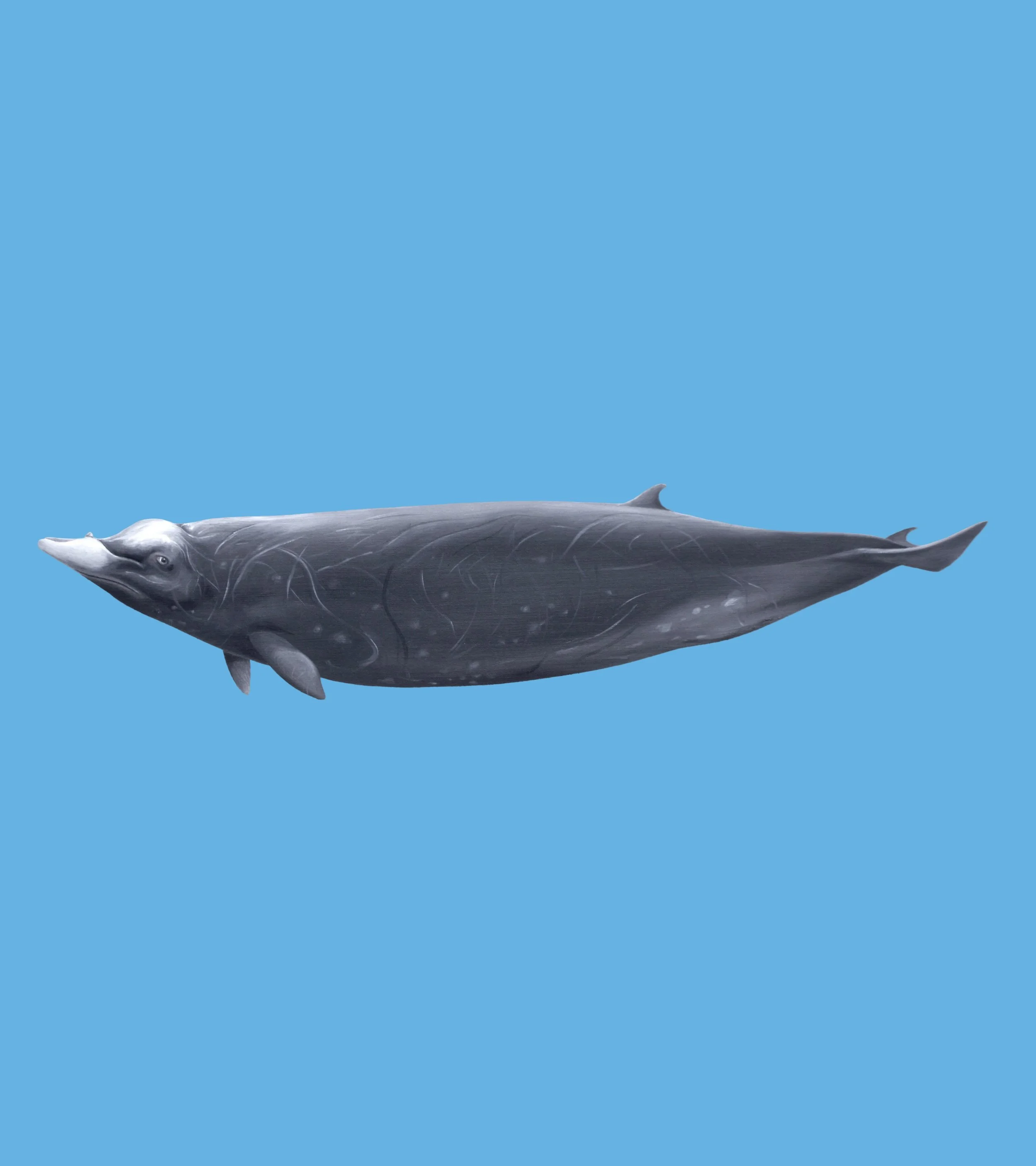
Noyo Center Talks Science: Unlocking the Mysteries of Beaked Whales (Zoom Event)
Art: Mesoplodon carlhubbsi (Hubbs' beaked whale), oil on paperBy Jörg Mazur
Noyo Center Science Social and Presentation with Kyle Emery: Kelp Forest and Sandy Beach Connectivity Fuels the Coastal Food Web
Kelp Forest and Sandy Beach Connectivity
Fuels the Coastal Food Web
Guest Presenter: Kyle A. Emery, PhD
Assistant Researcher
Marine Science Institute
University of California, Santa Barbara
Thursday, August 28, 2025
Noyo Center Marine Field Station
32430 N. Harbor Dr., Fort Bragg
5:00 Happy Hour (Wine, beer, and soft drinks)
6:00 Presentation Begins
Maintaining ecosystem connectivity is a key for the resilience of ecosystems to climate change. The largest observed cross-ecosystem fluxes are from marine to terrestrial systems, consist of exported primary production, and are driven by currents and tides. An exceptional example is the subsidy of organic matter exported by highly productive nearshore kelp forests to sandy beaches. Kelp exports from nearshore kelp forests to beaches support the biodiversity and ecosystem functioning of sandy beaches, as well as fuel highly productive beach food webs. Kelp wrack inputs to beaches are highly dynamic. Here, we utilized a kelp tagging experiment, local (100 m) to regional (100 km) scale measurements of kelp inputs, and nearshore kelp supply to determine the spatial relationship between beaches and kelp forests and the impacts on the animals which utilize these kelp inputs.
There is no charge for this event
but please let us know you are coming:
Kyle Emery, PhD, is Research Faculty at the University of California, Santa Barbara. His research program is focused on quantifying and understanding the ecological implications of coastal ecosystem connectivity, particularly between kelp forests and sandy beaches, and how the impacts of climate change can alter these dynamics via changes to food webs and community composition. His research is also focused on measuring the attributes of and changes in coastal habitats including kelp forests, rocky intertidal, sandy beaches, and dunes using remote sensing (drones, satellite imagery) approaches.

Noyo Center Talks Science: Beyond Pacific Tides: How Technology Has Provided a Window into the Secret Life of Marine Mammals
Noyo Center Talks Science:
Beyond Pacific Tides: How Technology
Has Provided a Window into
the Secret Life of Marine Mammals
Originally Broadcast Wednesday, August 20, 2025
The 2024 Ricketts Award recipient Dr. Daniel P. Costa (University of California Santa Cruz) is our guest presenter and will discuss how technology has provided insights into the behavior and physiology of marine mammals in nature.
The Ed Ricketts Memorial Lecture was created to honor scientists who have exhibited exemplary work throughout their career and advanced the status of knowledge in the field of marine science. The first award was presented in March 1986. Recipients are selected by the Monterey Bay National Marine Sanctuary Research Activity Panel.
For lecture abstract and history of the Ed Ricketts Memorial Award, please visit this website.
There is no fee for our science talk presentations, but your donations help to support the resources it takes to bring you these programs and speakers.
Noyo Center Science Talk with Researcher Frankie Gerraty: Coastal Carnivores Connect Land and Sea
Coastal Carnivores Connect Land and Sea
with Frankie Gerraty
(There is no recording of this event)
Thursday, August 7, 2025
Noyo Center Marine Field Station
32430 N. Harbor Dr., Fort Bragg
5:00 Happy Hour
6:00 Presentation Begins
We're pleased to host Frankie Gerraty, a Ph.D. student from UC Santa Cruz, who will share his groundbreaking research on a fascinating and rarely seen behavior: coyotes predating on harbor seal pups along the Northern California coast.
The mystery began years ago, when headless baby harbor seal carcasses started appearing at MacKerricher State Park. Frankie Gerraty, working with the Noyo Center for Marine Science and other institutions, set up camera traps. What they captured was astonishing: footage of coyotes actively hunting harbor seal pups, often going for their brains as a high-value meal.
There is no charge for this event, but space is limited, so please let us know you are coming:
There is no fee for our science talk presentations, but your donations help to support the resources it takes to bring you these programs and speakers.
First Glimpse of a Minke Whale Skull & Community BBQ
(There is no recording of this event)
Join Us for an Evening of Science, Community & Conservation
and a Summer BBQ
Special Guest: Moe Flannery
Ornithology and Mammalogy Collections Manager
at California Academy of Sciences
Wednesday, July 9, 2025
Noyo Center Marine Field Station
32430 N. Harbor Dr., Fort Bragg
Tickets: $25
6:00-7:30 PM - All Ticketholders
5:00-6:00 PM - Blue Whale Member and Special Invitee Early Reception
A Rare Glimpse and Expert Insights
In April, an adolescent minke whale's death in the Bay provided a rare opportunity to gather vital information on this less-common species in our region. The Marine Mammal Center performed the necropsy and the Noyo Center processed its skull for the Cal Academy of Sciences’ collection. Now it's ready for its first public showing alongside a rare beaked whale skeleton being prepared for articulation this summer.
Join us for this special event featuring Moe Flannery, Ornithology and Mammalogy Collections Manager at California Academy of Sciences, and leader of their marine mammal stranding response program. Moe will share insights into what they’ve seen this spring and their ongoing field work along the California coastline. You'll also hear compelling stories and perspectives on large whale strandings from Noyo Center's Sheila Semans, Sarah Grimes, and Sara Sundberg.
Your ticket includes a summer bar-b-que dinner on the deck, including burgers, gourmet sausages, fixings and side dishes. (Vegan options available)
Wine, beer and other beverages will be available for purchase.
Noyo Center Talks Science: Sea Turtles: Mysteries of the Ocean
Noyo Center Talks Science:
Sea Turtles: Mysteries of the Ocean
Guest Presenter: Brad Nahill
Co-Founder and President of SEE Turtles
Sea turtles have existed for more than 100 million years yet many questions remain about their lives. This presentation will explore some of these mysteries and cover their basic ecology and importance to the ocean as well as threats and efforts to protect them.
Brad Nahill has worked in sea turtle conservation, ecotourism, and environmental education for 20+ years. He is the editor and lead writer of Sea Turtle Research and Conservation: Lessons From The Field by Elsevier Press (2020) and a co-author of the Worldwide Travel Guide to Sea Turtles (2014). He is a National Geographic Explorer and was awarded the President’s Award for his work as the chair of the Awards Committee of the International Sea Turtle Society. Under his leadership, the organization has helped saved more than 20 million hatchlings, raised millions for turtle conservation, and connected thousands of people with local conservation efforts around the world. The organization has won awards from Travel + Leisure, the World Travel & Tourism Council, and others for their work to protect these endangered animals.
SEE Turtles was launched in 2008 as the world's first effort to protect these species through ecotourism by conservationists Dr. Wallace J. Nichols and Brad Nahill. Originally begun as an Ocean Conservancy project, SEE Turtles was later fiscally-sponsored by the Ocean Foundation and most recently Oceanic Society. In 2016, SEE Turtles became an independent 501c3 nonprofit based in Portland, Oregon. In recognition of our work to protect sea turtles around the world, the organization has been given several prestigious awards including Travel + Leisure’s Global Vision Award, the Changemakers Award from the World Travel & Tourism Council, and the Skal Sustainable Travel Award.
There is no fee for our science talk presentations, but your donations help to support the resources it takes to bring you these programs and speakers.
Noyo Center Talks Science: Domoic Acid Toxicity in California Sea Lions
Domoic Acid Toxicity in California Sea Lions
Guest Presenter: Dr. Cara Field
Director of Conservation Medicine
The Marine Mammal Center
In 1998, The Marine Mammal Center diagnosed the first case of domoic acid toxicosis in marine mammals. This condition is caused by harmful algal blooms, sometimes referred to as “red tides.”
Domoic acid is produced during certain harmful algal bloom events by a type of algae called Pseudo-nitzschia australis. This neurotoxin accumulates in small fish, like sardines and anchovies, which are then eaten by marine mammals like sea lions in large quantities.
Domoic acid attacks the brain and the heart causing seizures and heart failure. If left untreated, it usually causes permanent brain damage. The toxin will naturally flush from an animal’s system over time, but sea lions repeatedly exposed to the toxin will suffer longer-lasting and more serious effects.
Dr. Field is a certified Diplomate in the American College of Zoological Medicine, and one of only 35 Diplomates with the specialty of aquatic animal medicine. Additionally, in 2024, she was elected president of the International Association of Aquatic Animal Medicine. Dr. Field currently serves as an advisor for multiple aquatic animal conservation working groups.
There is no fee for our science talk presentations, but your donations help to support the resources it takes to bring you these programs and speakers.
Noyo Center Talks Science with Jennifer Garrison
Noyo Center Talks Science:
Sustaining and Regenerating Biodiversity
Along the Mendocino Coast
Guest Presenter: Jennifer Garrison
California Department of Fish and Wildlife
In this program we explore the the biodiversity of wildlife and plant species and natural communities in Mendocino County (specifically the coast) and will provide online resources to help people identify species they observe. I then will focus on what we can take as individuals and as a community to sustain and regenerate biodiversity.
Jennifer Garrison is a Senior Environmental Scientist with the California Department of Fish and Wildlife whose work has encompassed regional planning, conservation, and improving wildlife connectivity, and permitting. She is passionate about native species, their habitats, and educating others on the importance of habitat protection and restoration. Prior to joining CDFW in 2013, Jennifer worked in the private sector permitting and implementing environmental compliance on large infrastructure projects including the development of mitigation projects. In her free time, she makes things in her art studio, designs native gardens, and wrangles invasive species on her land with the help of two labrador retrievers.
Noyo Center Science Talk: Harbor Seals
Seals Beside Us:
Harbor Seals and Other Inhabitants of the
Point Arena Lighthouse and Stornetta Public Lands
Guest Presenters: Sara Bogard & Sarah Grimes
If you missed the April in-person presentation with Sara Bogard on her field work with harbor seals, join us for this program when she will be joined by Sarah Grimes, Noyo Center’s Marine Mammal Stranding Coordinator.
This presentation is a visual journey and stories of the Harbor Seals and other inhabitants that reside, give birth and migrate through the Point Arena Lighthouse and Stornetta Public Lands. They also explore other stories about the spring pupping season in the rookeries in the area, and the valuable marine mammal stranding work conducted along the Mendocino Coast.
There is no fee for our science talk presentations, but your donations help to support the resources it takes to bring you these programs and speakers.
Noyo Center Science Talk: Seals Beside Us
Seals Beside Us:
Harbor Seals and Other Inhabitants of the
Point Arena Lighthouse and Stornetta Public Lands
(There is no recording of this event)
Saturday, April 5, 2025
Noyo Center Marine Field Station
Guest Presenter: Sara Bogard
This presentation is a visual journey and stories of the Harbor Seals and other inhabitants that reside, give birth and migrate through the Point Arena Lighthouse and Stornetta Public Lands. Sara Bogartdphotographs and collects data on the Harbor Seal population, the migratory and nesting birds and other mammals seen on her weekly surveys. This year marks her 6th year of surveying this area.
During the Harbor Seal pupping and molting season her observations focus on mother and pup interaction and the survival skills pups practice during the first month. Each year brings new observations and awareness in this ongoing cycle. As of May 9th, 2024, she had counted up to 39 Harbor Seal pups. Her data continues to show patterns which, over time, reveal information on how this local population is doing from year to year. Each year is different, and observations of unusual or new species and behavior are also recorded. From this data and information, patterns and cycles of birth, nesting and migration emerge to make these bluff tops a spectacular place to view and connect with the natural world.
There is no fee for our science talk presentations, but your donations help to support the resources it takes to bring you these programs and speakers.
Sara Bogard is a citizen scientist and a volunteer for several conservation organizations, including the Greater Farallones National Marine Sanctuary Beach Watch Program, the California Harbor Seal Monitoring and Inventory Program, the Marine Mammal Center and the Harbor Seal Docent Program at The Sea Ranch. She does monthly and weekly surveys on beaches and bluff tops from Black Point Beach to South Manchester State Beach. Her volunteer work includes the counts of live and dead species, recording data of dead species on the beach, and taking survey photographs. Throughout the year, and during the Harbor Seal pupping and molting season from March through July, she counts the number of adults, immatures and pups at the Point Arena Lighthouse and Stornetta Public Lands. She assesses the condition of live stranded pinnipeds in the area, and when needed performs seal rescues with other designated volunteers. She also shares information on Harbor Seals for the general public during the Harbor Seal pupping season. Her goal is to collect this data and share her observations to promote the health and sustainability of pinniped populations in Northern California and bring public awareness to the effects of human and current environmental factors which affect these species.
Noyo Center Science Talk: Five New Discoveries About Orcas: Zoom Program
Five New Discoveries About Orcas
Originally Aired Tuesday, March 18, 2025 on Zoom
Guest Presenter: Andrew Trites
Director, Marine Mammal Research Unit
University of British Columbia, Vancouver
Dr. Trites oversees the Marine Mammal Research Unit and a research program that involves captive and field studies of seals, sea lions, whales and dolphins.
His research is primarily focused on pinnipeds (Steller sea lions, northern fur seals, and harbor seals) and involves captive studies, field studies and simulation models that range from single species to whole ecosystems. His research spans the fields of ecology, nutrition, physiology, and animal behavior—and is designed to further the conservation of marine mammals. It is also designed to further the conservation and understanding of marine mammals and resolve conflicts between people and marine mammals. The research program includes researchers, students, technicians, and support staff. The training of students, and the collaboration between researchers specializing in other disciplines (such as nutrition, ecology, physiology and oceanography) is central to the success of his research program.
Photo: UBC
Noyo Center Science Social: Eastern Pacific Gray Whales
Eastern Pacific Gray Whales
with Tanya Smart
Wednesday, February 26, 2025
Noyo Center Marine Field Station
32430 N. Harbor Dr., Fort Bragg
5-6PM Happy Hour
Wine, beer, drinks, snacks
6-730PM Presentation
In this program we will explore how to interpret the natural history of the Eastern Pacific Gray Whale including adaptations for the aquatic habitat, current estimates of the population and how to help visitors see them from land.
Come early between 5-6 for drinks, snacks and a chance to swap your favorite gray whale tales before the talk begins.
Following the presentation there will be an opportunity to ask questions.
There is no admission for this event, although your donations support our programming and the costs associated with bringing you these presentations.
Thank you for your support! DONATE here.
Noyo Center Science Talk: Coastal Geology: Zoom Program
The Geologic History of the Northern California Coastline
Wednesday, February 19, 2025
Guest Presenter: Nicole Myers
Sonoma State university
The Northern California coastline was located far east of its current location and has very slowly migrated westward as the North American continent slowly grows. While the dinosaurs walked the Earth a deep ocean trench and volcanic eruptions marked the edge of California, until the formation of the San Andreas tectonic boundary created geologic complexity along the western edge of the continent. As the coastline rose out of the sea and sea levels fluctuated, ocean circulation evolved as climate continued to relentlessly change. The rocks tell the story of the rise and fall of islands, ancient volcanism, forming faults, and evolving ecosystems. Join geologist Nicole Myers to explore the geologic history of the Northern California coastline and learn how the rocks, tectonic plates, faults, ocean waters, and life have evolved for hundreds of millions of years.
Nicole Myers, M.S. in Geological Sciences, developed a passion for understanding the Earth from a childhood fascination with rocks and volcanoes, and now teaches others to appreciate planet Earth. Nicole has been teaching Earth science classes, including geology, climatology, & Earth history for more than 18 years. She currently teaches at Sonoma State University, and through Appreciating Earth (www.appreciatingearth.com) Nicole brings her enthusiasm to the community by offering Earth science field explorations and presentations.
There is no fee for our science talks, although your donations support our programming, and the costs associated with bringing you these presentations.
Thank you for your support! DONATE here.
Noyo Center Talks Science with Photographer Patrick Webster
Noyo Center Talks Science
with Underwater Photographer Patrick Webster
Kelps of the World
Originally Broadcast on Wednesday, January 29, 2025
Pat Webster is a marine media monkey politely pushing pixels and mild-mannered alter ego to @undewaterpat. Born and raised a missionary kid in the French Alps and the suburbs of Stockholm, Sweden, he found his way into kelp forest evangelism via UC Santa Cruz’s scientific diving program and frequent visits to his backyard kelp kathedrals in Monterey Bay, California. Pat’s underwater photography and debilitating word asso-sea-ocean syndrome have buoyed him along his career in marine science education working with The Seymour Marine Discovery Center, Monterey Bay Aquarium, Lindblad Expeditions National Geographic, The Nature Conservancy, SCUBA Diving Magazine and more. Pat’s favorite thing is to help connect his fellow Earthlings with the Inner Space of Planet Ocean, all with a little kelp from our fronds.
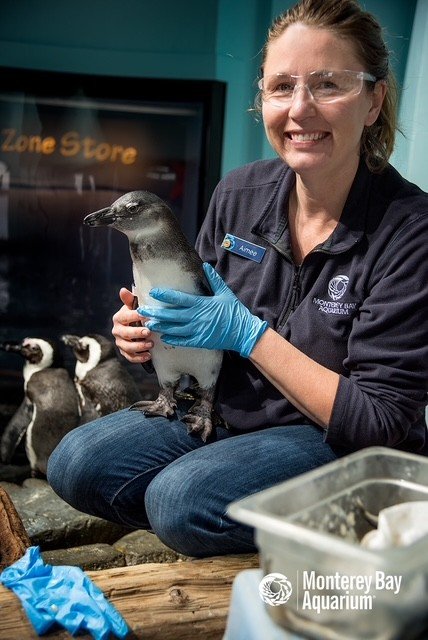
Mendocino Coast Audubon Society Presents “Meet our African Penguins”
Mendocino Coast Audubon Society presents
“Meet our African Penguins”
Guest Presenter:
Aimee Greenebaum, Monterey Bay Aquarium
Recorded on Monday, January 13th, 2025 at 7:00pm
Location:
Noyo Center Marine Field Station
Get a behind the scenes look at the African penguin colony at the Monterey Bay Aquarium. We will learn about some of the drama that happens between pairs -- romance, break ups, and even learn a little about their chick rearing. This is a unique opportunity to learn about the individual birds in a way that isn't possible by visiting them at the aquarium.
Aimee Greenebaum is the Curator of Aviculture at the Monterey Bay Aquarium. She received a Bachelor of Science in wildlife biology from Kansas State University. She has been working with birds for over 24 years and has been with the Monterey Bay Aquarium for almost 21 years. She manages the Aquarium’s avian exhibits, which currently include the shorebirds, Common murres, Tufted puffins, African penguins, and Laysan Albatross. Aimee is the Co-Chair for the Avian Scientific Advisory Group (ASAG) and steering committee member for Charadriiformes Taxon Advisory Group (TAG) for AZA accredited Zoos and Aquariums.
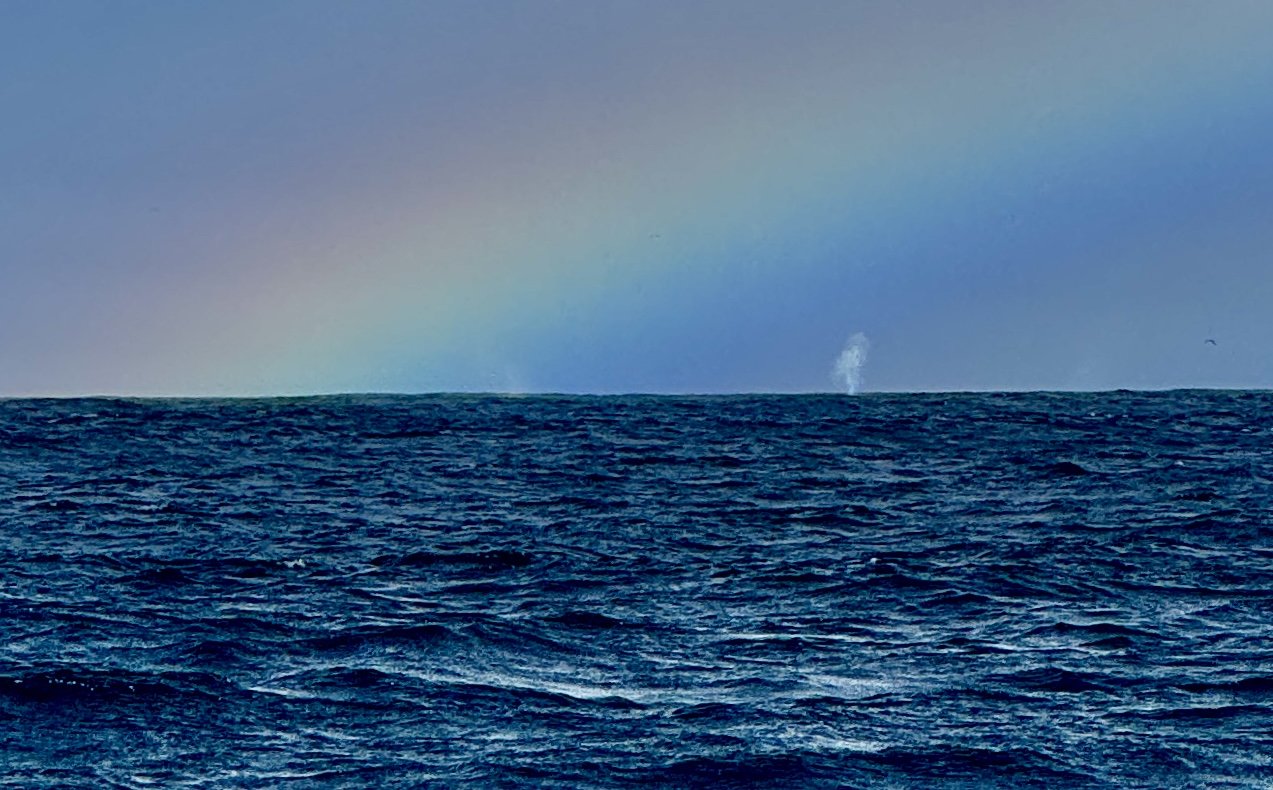
Noyo Center Science Talk: What Washed Ashore in 2024
What Washed Ashore in 2024
Sarah Grimes, Marine Mammal Stranding Coordinator for Noyo Center for Marine Science, gives us a report of WHAT and WHO has washed Ashore in 2024.
There is no fee for our science talks, although your donations support our programming, and the costs associated with bringing you these presentations.
Thank you for your support! DONATE here.

Noyo Ocean Science Center Design Presentation
Ocean Science Center
Design Presentation
We have completed a new design phase for the Ocean Science Center on the Noyo Headlands and would like to get input from the community on the basic designs and landscape restoration plans.
If you missed the in-person presentation in Fort Bragg please join us virtually, along with EHDD Architecture and SCAPE Landscape Architecture, to learn more about this exciting project and the vision for the future of marine science on the Mendocino Coast.
If you have comments about the designs presented in this program please share them with us by EMAIL. Thanks for your interest and support!
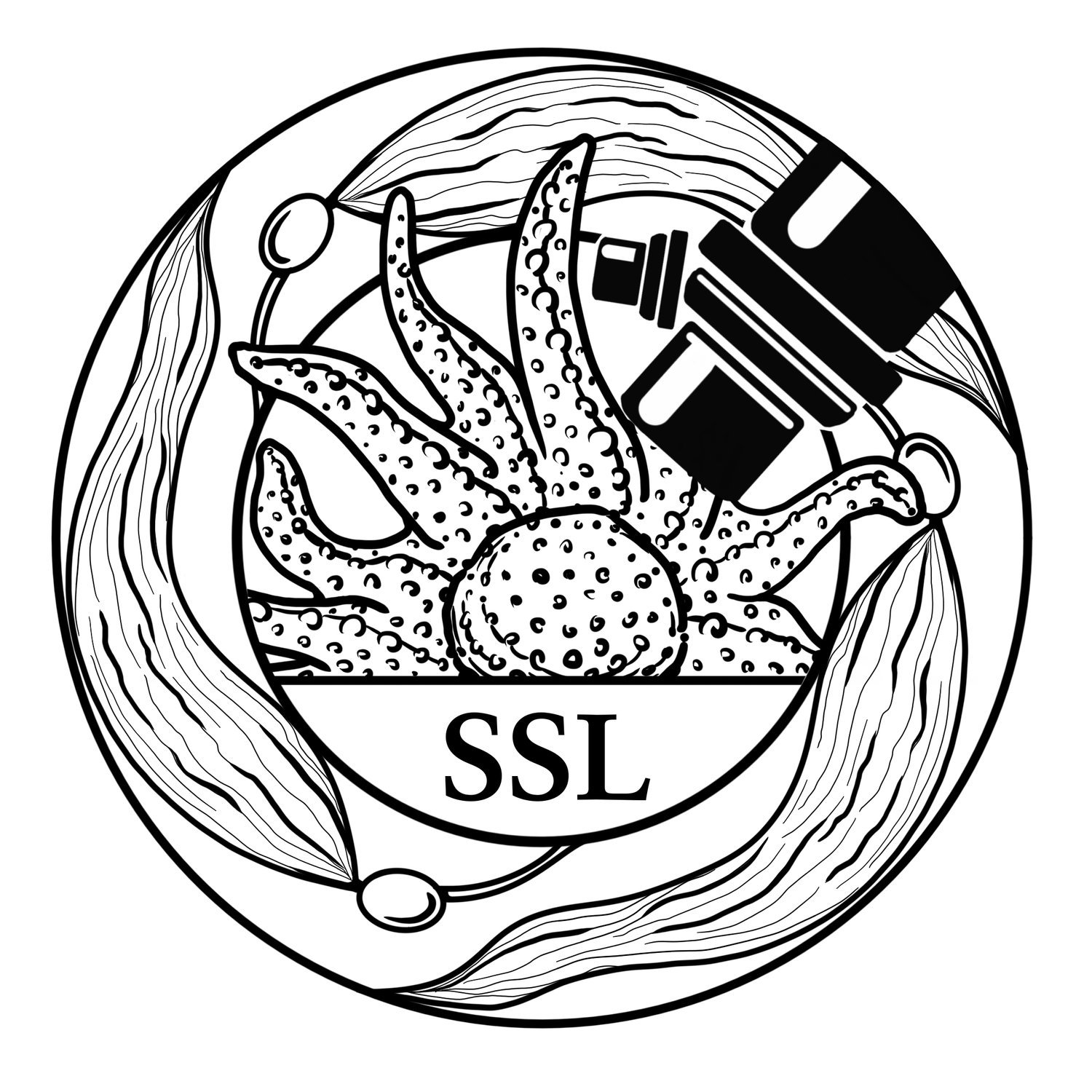
Noyo Center Talks Science with Sunflower Star Labs
Noyo Center Talks Science
with Sunflower Star Labs
Our guest presenters for this program are Lauren Schiebelhut, Ashley Kidd, and Andrew Kim from Sunflower Star Laboratory (SSL), a Monterey-based non-profit committed to researching and developing reliable and scalable aquaculture methods for sunflower star (Pycnopodia helianthoides) conservation and reintroduction.
Learn more about the program and the scientists:
-
Starting in 2013, the sunflower sea star (Pycnopodia helianthoides) experienced 88–100% mortality from all but the northernmost portion of its range during a sea star wasting (SSW) outbreak with elevated water temperatures. We used whole genome sequencing (WGS) analyses to describe contemporary population genetic structure contextualized with historical samples to better understand the genetic landscape of Pycnopodia. These results provide insights to help inform future conservation actions for this ecologically important species in the face of ongoing global change.
Lauren Schiebelhut earned her Ph.D. at the University of California, Merced, conducted postdoctoral research at the University of California, Merced and the University of California, Davis. She has extensive field experience working in temperate and tropical marine systems, with macrophytes as well as marine invertebrates. Lauren is currently working with the Sunflower Star Laboratory to advance conservation genomics work for the sunflower sea star while also working as a Biology Instructor at Clovis Community College. Her work is supported by the National Science Foundation, The Nature Conservancy, and Revive & Restore.
-
The Sunflower Star Laboratory was formed in response to the observed kelp forest ecosystem shifts off our coast. The mission of the Sunflower Star Laboratory is to protect the diversity of coastal ecosystems by supporting research and developing scalable aquaculture methods to restore sunflower stars to their historic range in California. We are proud to engage our community through outreach, volunteer positions and paid internships, and to share the information from the greater scientific community who are working on understanding the diverse aspects of this species recovery.
Ashley Kidd's passion in aquaculture began as a professional aquarist in public aquariums, supporting sustainable exhibits and conservation initiatives, notably with SECORE coral conservation & the White Abalone Recovery Project. She holds an MS in Fisheries and Aquatic Sciences from the University of Florida, researching sunflower sea stars & their restoration through public aquarium engagement. She is fortunate to continue this work at SSL, contributing to the Pycnopodia Recovery Working Group; and the Association of Zoos and Aquariums Saving Animals from Extinction Sunflower Sea Star program.
-
On Valentines Day, 2024 a male and female sunflower sea star were successfully spawned at the Birch Aquarium at Scripps Institution of Oceanography, producing the first cohort of juvenile sunflower stars in the state. Moss Landing Marine Labs was one of five institutions in California who applied their expertise in aquaculture to explore opportunities for research and restoration of this critically endangered species.
Andrew Kim has over 12 years of experience in animal husbandry and aquaculture in Monterey Bay. He is currently the lead aquaculture research technician at Moss Landing Marine Labs where he is offering technical support on a variety of aquaculture-related projects from Purple-Hinged Rock Scallop larviculture to bull kelp restoration. He previously worked at Long Marine Labs and at the Monterey Abalone Company, where he managed scientific collections and abalone production from hatchery to harvest.
Watch a recording of the program:
You can help scientists studying the health and recovery of sunflower stars and other sea stars affected by wasting syndrome by reporting your observations. MARINe and iNaturalist are great ways to do that. Visit the links below to learn more about how you can participate.

Noyo Center Talks Science: Sharktober: Celebrating Sharks of the Northeast Pacific
Sharktober: Celebrating Sharks of the Northeast Pacific
Original Broadcast: 10/23/24
Guest Presenter: David McGuire, MEH, Director Shark Stewards, Founder Shark Stewards
A marine biologist and shark advocate, David McGuire is the founder of the Ocean Health and Shark Conservation nonprofit Shark Stewards dedicated to saving sharks and protecting critical marine habitat. As a sailing captain, dive master and filmmaker, David has explored the world ocean on numerous sailing voyages producing media with an emphasis on sharks and ocean awareness.
Learn more about David’s work HERE.

Ocean Science Center Design Presentation
Ocean Science Center Design Presentation
Friday, October 18
1-4PM; presentation will begin at 2PM
We have completed a new design phase for the Ocean Science Center on the Noyo Headlands and would like to get input from the community on the basic designs and landscape restoration plans.
Join us along with EHDD Architecture and SCAPE Landscape Architecture to learn more about this exciting project and the vision for the future of marine science on the Mendocino Coast.
We look forward to seeing you!
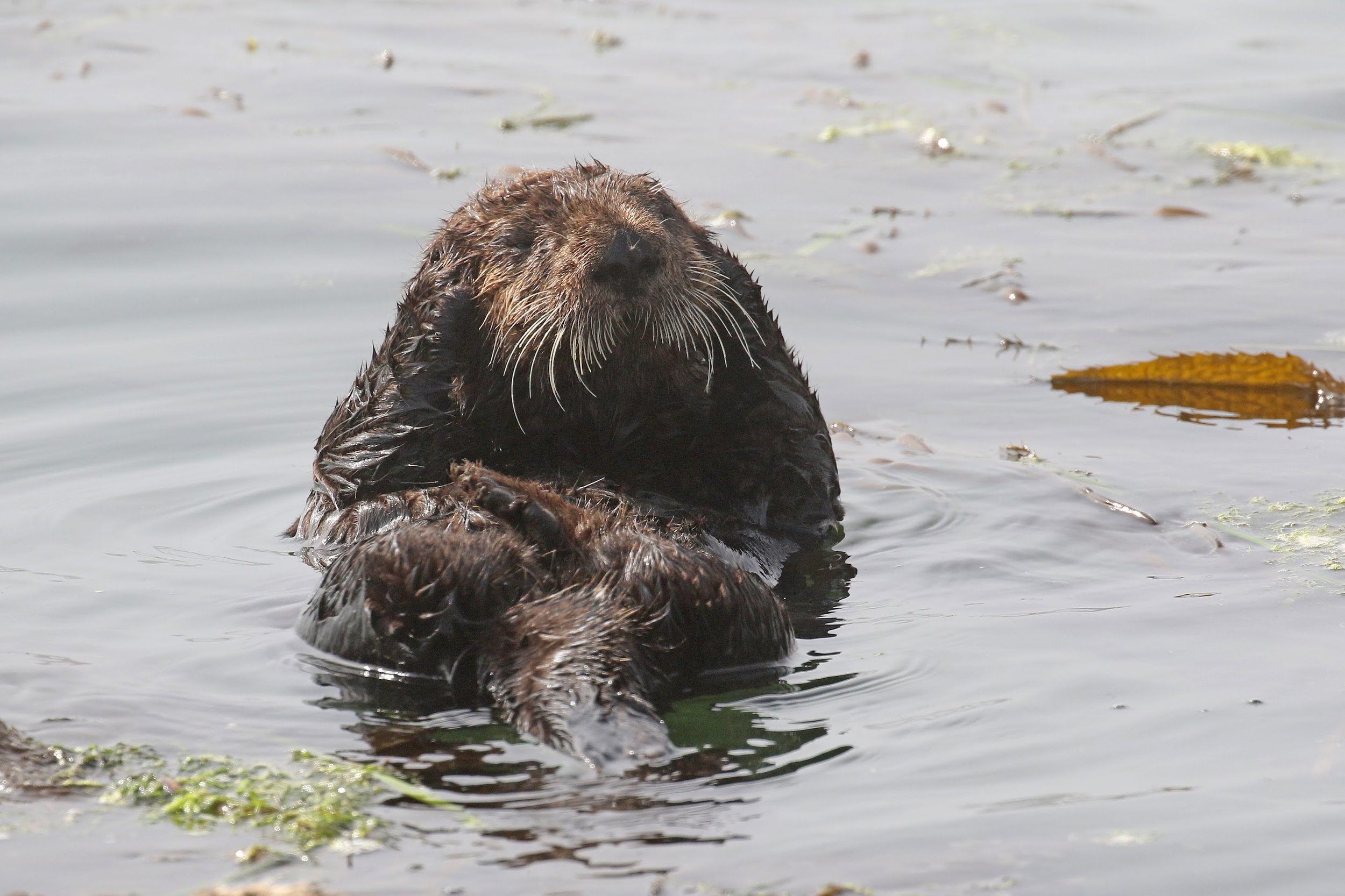
Noyo Center Talks Science: Sea Otters and the Kashia Band of Pomo Indians
qʰamosʼ wehke in Kashia Territory
In this program Noyo Center and Sea Otter Savvy presented a special Sea Otter Awareness Week We Were Here sea otter event featuring the Kashia Band of Pomo Indians.
In this presentation you will hear information about the Kashia Pomo people’s history and cultural relationships with sea otters. We will discuss the impact of the Russian and American Fur Trade on the sea otter population in Kashia territory, and the lasting impact of the lack of coastal access on the Kashia community. We will also delve into the current, ongoing projects that collectively support sea otter reintroduction including abalone aquaculture, sea urchin removal, 3D tidal monitoring, and scuba diving/kelp recovery. The Kashia people have a deep connection to the ocean, restoring tribal communities access to their land benefits not only the tribes, but the natural environment and resources surrounding us all.
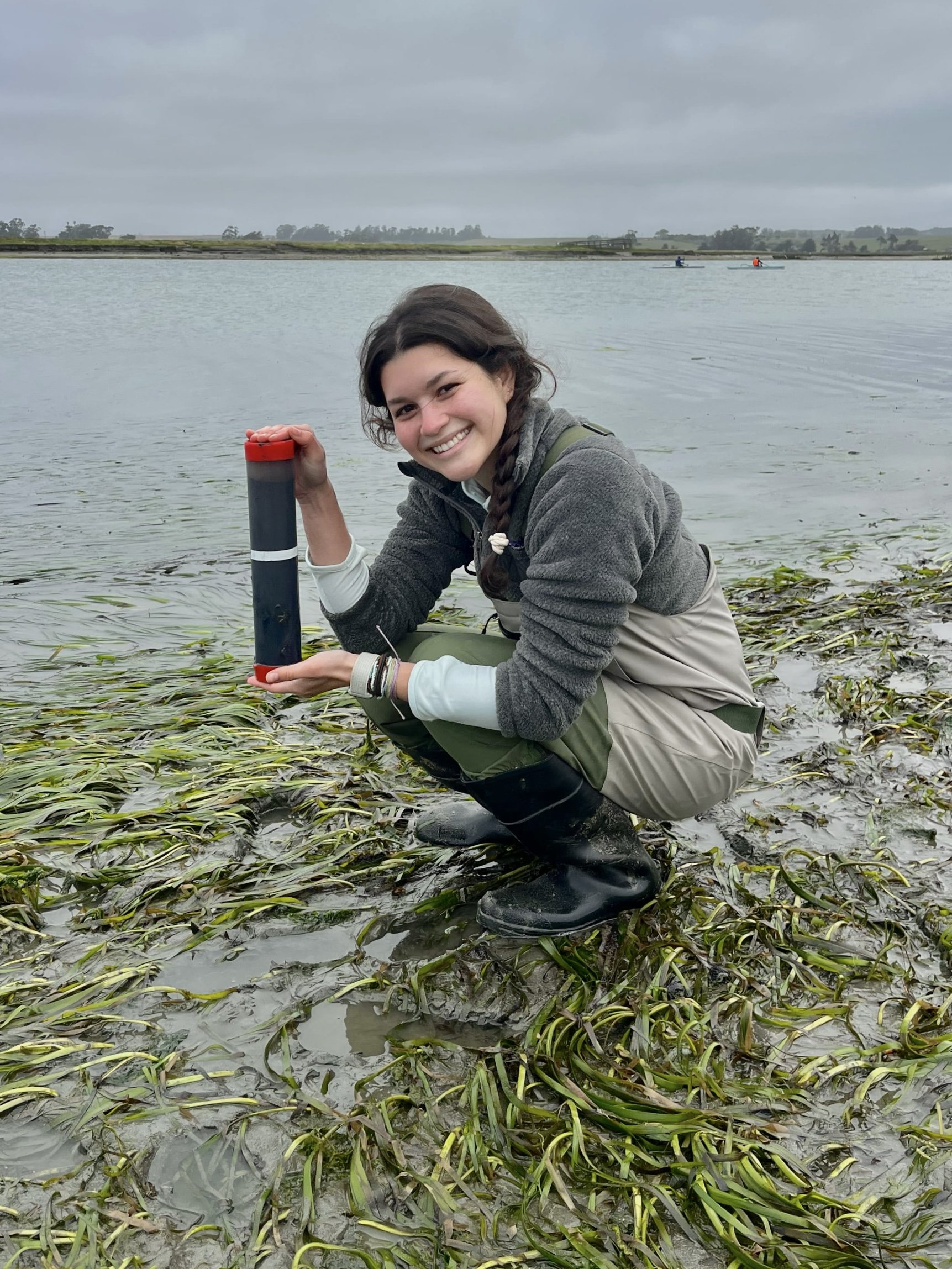
Noyo Center Talks Science: Seagrass: A Climate Change Solution
Seagrass: A Climate Change Solution
Guest Presenter: Elisabeth H. Sellinger
Dr. Tessa Hill | Ocean Climate Lab
UC Davis Earth and Planetary Sciences
We've known for a while that carbon dioxide from burning fossil fuels warms our climate. To prevent severe events, we need to stop producing CO2 and remove some of it. Natural climate solutions are here to help, enhancing what the Earth does naturally. Trees and land plants sequester carbon through photosynthesis, but did you know the ocean is a major carbon sink too? About half of this carbon is stored in blue carbon coastal ecosystems like seagrasses. These amazing marine plants, found on coasts worldwide except Antarctica, store carbon in their plant matter and sediments for hundreds of years. Plus, they offer multiple co-benefits like coastal protection, enhancing biodiversity, and stabilizing sediments. Come join us to learn about the importance of seagrass, fun coastal critters, and positive climate change solutions!
Elisabeth Sellinger is Ph.D. student at the University of California Davis in the Earth and Planetary Sciences Department and the Bodega Marine Laboratory. She works with Dr. Tessa Hill on seagrass carbon storage along the California coast, specifically looking at the impacts of restoration. Elisabeth is collaborating with Greater Farallones and Monterey Bay National Marine Sanctuary on both seagrass research and outreach/education.
Learn more about Elisabeth’s work HERE.
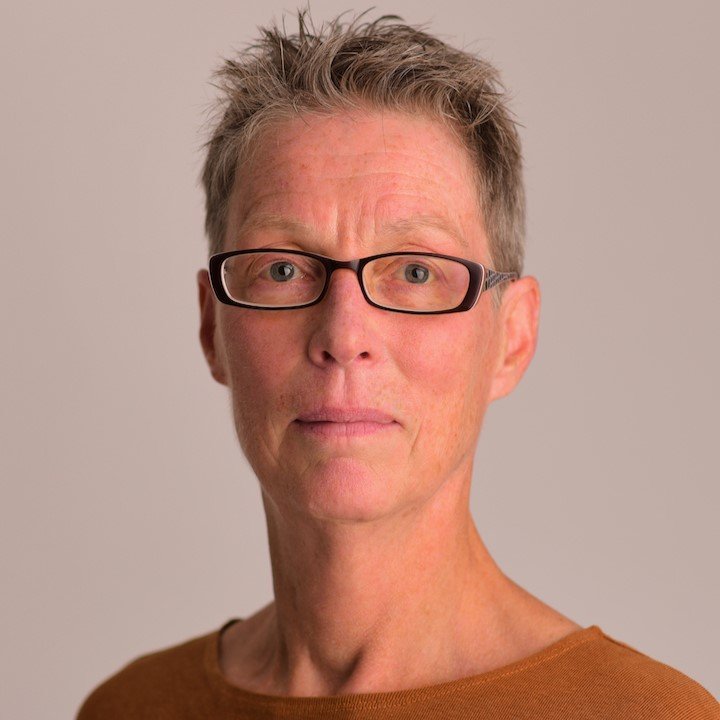
Noyo Center Talks Science: COASST
What's Washed In: Seabirds and Citizen Science
This was an in-person Science Talk Presentation at the Noyo Center Marine Field Station and was not recorded.
Presentation begins at 6PM
Doors open at 5:30 PM with beer and wine available for purchase
There is no fee for this presentation, but a suggested donation of $10 helps us with the costs associated with continuing to bring you these programs. Thank you for your support.
Guest Presenter: Julia K. Parrish
Associate Dean for Academic Affairs in the College of the Environment at the University of Washington
The Coastal Observation and Seabird Survey Team (COASST) has been monitoring the California (and Oregon, Washington, and Alaska) coastlines for over two decades, working with local citizens to track the patterns of seabird mortality on local beaches. Hands-on citizen science offers an opportunity to collect environmental data over stretches of space and time that no research lab could hope to attain on its own. It also provides the opportunity for program participants and partners to learn about natural history at multiple scales: from seasonal shifts in the distribution of local species to dramatic changes in the ecosystem. In this presentation, we will examine the baseline patterns of beached bird abundance and look at what we have discovered thanks to 24 years of volunteers doing surveys.
Julia K. Parrish is the Associate Dean for Academic Affairs in the College of the Environment at the University of Washington, and a Lowell A. and Frankie L. Wakefield Professor of Ocean Fishery Sciences. She is a marine biologist, a conservation biologist, and a specialist in animal aggregation. For more than 30 years, Julia has conducted research on seabirds, focused on the natural and human-caused factors causing population decline. Julia is also the Executive Director of the Coastal Observation and Seabird Survey Team (COASST), a west-coast citizen science program involving hundreds of participants collecting monthly data on the identity and abundance of beach-cast birds and marine debris, with the goal of creating the definitive baseline against which the impacts of any near-shore catastrophe could be measured.










